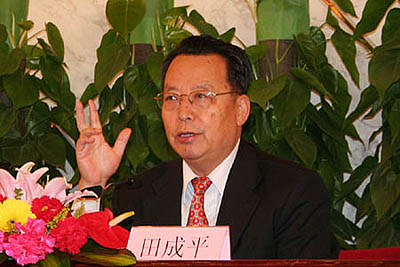|

Labor and Social Security Minister Tian Chengping said here on Sunday that the employment situation will be "very severe" this year, even though China has generated 51 million jobs in urban areas in the past five years.
Speaking on the sidelines of the First Session of the 11th National People's Congress (NPC), Tian said that about 20 million new job seekers emerge in urban and rural areas every year, and China will have a large contingent of new labor market entrants for quite a long time.
However, cities and towns can only provide about 12 million jobs each year. Meanwhile, huge numbers of migrant workers are flowing into cities, Tian said.
Premier Wen Jiabao said in his government work report, delivered at the parliamentary session on Wednesday, that "providing adequate employment opportunities in China, which has the largest population in the world, is a daunting challenge."
"We must redouble our efforts to increase employment, a matter that is crucial to people's well-being," the premier said.
Some economists said that while tight monetary policy might curb what's been termed over-investment, it might also increase pressure on the labor market.
According to Tian, six measures would be taken to promote employment:
-- implementing a job-creation strategy and prioritizing job generation in the course of social and economic development;
-- improving active employment policies;
-- encouraging job creation through start-up businesses;
-- improving the employment service system for job-seekers;
-- providing occupational training to resolve structural mismatches in the labor market;
-- establishing an unemployment early warning system and striving to maintain stable employment.
According to Wen, China spent 66.6 billion yuan (about 9.3 billion U.S. dollars) in the form of central government subsidies over the past five years to support employment programs. These programs had helped more than 10 million urban people get jobs and8 million rural workers find jobs in non-agricultural sectors per year on average.
The problem of finding new jobs for former state-owed enterprise staff had been basically resolved, and the work of incorporating basic cost of living allowances for laid-off workers into the unemployment insurance system had been completed, Wen said.
The urban unemployment rate in the past five years was lower than 4.3 percent, but the ministry has set the 2008 target at 4.5 percent.
(Xinhua News Agency March 9, 2008) | 